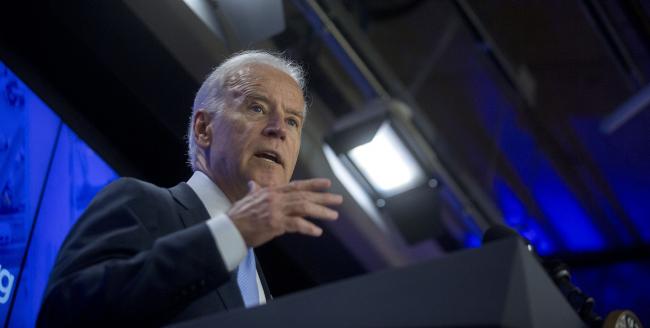(Bloomberg) -- More than two-thirds of investors view Joe Biden as the most stock-market friendly Democratic candidate, according to an RBC survey of U.S. equity investors.
That means that “if Biden doesn’t declare, or the polling data starts to suggest that he will fail to win the nomination, it could weigh on the stock market,” RBC’s head of U.S. strategy Lori Calvasina wrote in a note on findings from a survey of 141 institutional investors that was conducted from March 25 to April 1. Senator Elizabeth Warren was viewed as the least stocks-friendly Democratic candidate, edging out Senator Bernie Sanders by 51 percent to 38 percent.
Regardless of the nominee, just 24 percent of investors surveyed see a Democratic victory in 2020, while 71 percent expect President Donald Trump to succeed in his re-election bid. And “there’s still some nervousness around the event,” Calvasina wrote. About 40 percent of those surveyed said they plan to adjust their portfolios ahead of the election, although the changes they were making weren’t disclosed in the survey findings.
Respondents viewed health care stocks as most at risk if the Democrats sweep the White House and both chambers of Congress, followed by financials, energy, and tech. None mentioned other defensive sectors, like utilities, staples and REITs, Calvasina said.
Other survey findings included:
- 43 percent were bullish about the U.S. equity market outlook over the next six to 12 months; 33 percent were neutral and 24 percent held a bearish view
- 38 percent expect the next recession in 2021, compared to 30 percent for 2020; just 5 percent expect the next recession to begin in 2019
- Almost two-thirds think the Fed’s next action will be a rate cut, while the rest believe it will be a hike
- China, monetary policy, politics, the yield curve and global growth topped the list of concerns
- 31 percent believe a trade deal with China will be reached in the second quarter, while another 38 percent believe a deal will be reached in the third quarter
“We continue to think the stock market faces a big test in the months ahead on the economy,” Calvasina said. RBC expects the stock market may give back some gains without signs that the first quarter’s “rough patch” is ending or, if labor market signals deteriorate.
RBC also views expectations for a rate cut in 2019 as too “optimistic,” and worries “that if the Fed does cut before the year is up, investors will be spooked by the reason for the move.”
(Updates story throughout.)
